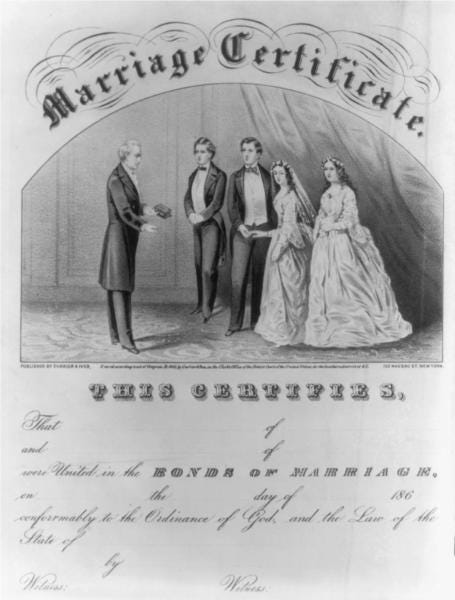Is Singlism a Thing?
The answer: Yes.
Singlism, the discrimination against people who aren’t married or partnered, is real. “Singletons,” as we’re inanely called, are punished in the United States in ways that might surprise you. We pay more in taxes. The Fair Housing Act doesn’t prohibit marital-status discrimination, so mortgage brokers and landlords can deny us places to live. We’re charged more for health insurance. Car insurers see us as “high risk” and feel justified in upping our premiums by 10 percent. Married men earn more than single men. We don’t get to take leave when someone other than a spouse or child needs care and can’t bequeath our social security survivor benefits to someone we love.
Checking the box marked single shouldn’t bother me, but it does. The social scientist Bella DePaulo, the figurehead of what’s referred to as singles’ rights and the science of being single, asks, “[W]hy does anyone have to be part of any kind of couple to get the same federal benefits and protections as anyone else?” We’re judged as being maladjusted, immature, and self-centered.
Marital privilege and bias—which DePaulo has shown exist in everything from politics to religion to teaching, advertising, therapy, and pop culture—are largely ignored by social justice warriors. As DePaulo says, “People don’t notice singlism, and if their attention is called to it, they think there’s nothing wrong.”
We live in a marriage- and couple-obsessed culture. This is only partly due to heteronormativity. The U.S.’s marriage/partnered-relationship fascination has not just one name but two: amatonormativity and matrimania (my favorite). It’s the idea that being in a monogamous relationship—or any romantic relationship—is somehow endemic to being human and the goal of being alive. The cultural conversation insists that somehow—even though a romantic relationship typically requires being in another person’s presence an ungodly amount of the time—being married is something to strive for (at least for women). A third of Americans are single by choice, but most people want to be in a “serious relationship” and cohabitate.
One of the strongest cultural myths is that having a partner helps a person happy, healthy, and feel fulfilled. It doesn’t. Married people aren’t any happier. (The studies that said otherwise were found to be flawed.) A single person is just as likely to be healthy as someone legally bound to another person is. For some time, it was assumed that the reason why married people were more likely to survive cancer was because they were, well, married; it turns out, it’s because doctors are biased against single people. Doctors assume we don’t have the social support to survive more aggressive treatments and therefore aren’t as likely to recommend them.
Believe it or not, half of us singletons aren’t even pining for coupledom. Fifty million Americans exist dating-app-free and get to live in a home where the household tasks are done exactly how we like them, posing the question, Is coupledom—or even the desire for coupledom—essential to a fulfilling life?
Support independent journalism. Readers like you make my work possible. Get the annual discounted subscription for $30/year—the equivalent of purchasing one hardcover book.
You can buy my memoir, Pathological: The True Story of Six Misdiagnoses (HarperCollins), here:
*








